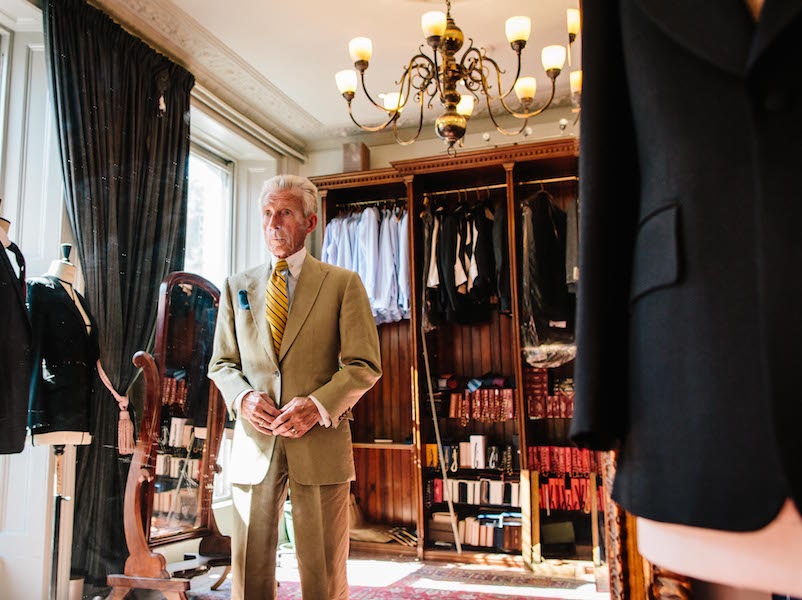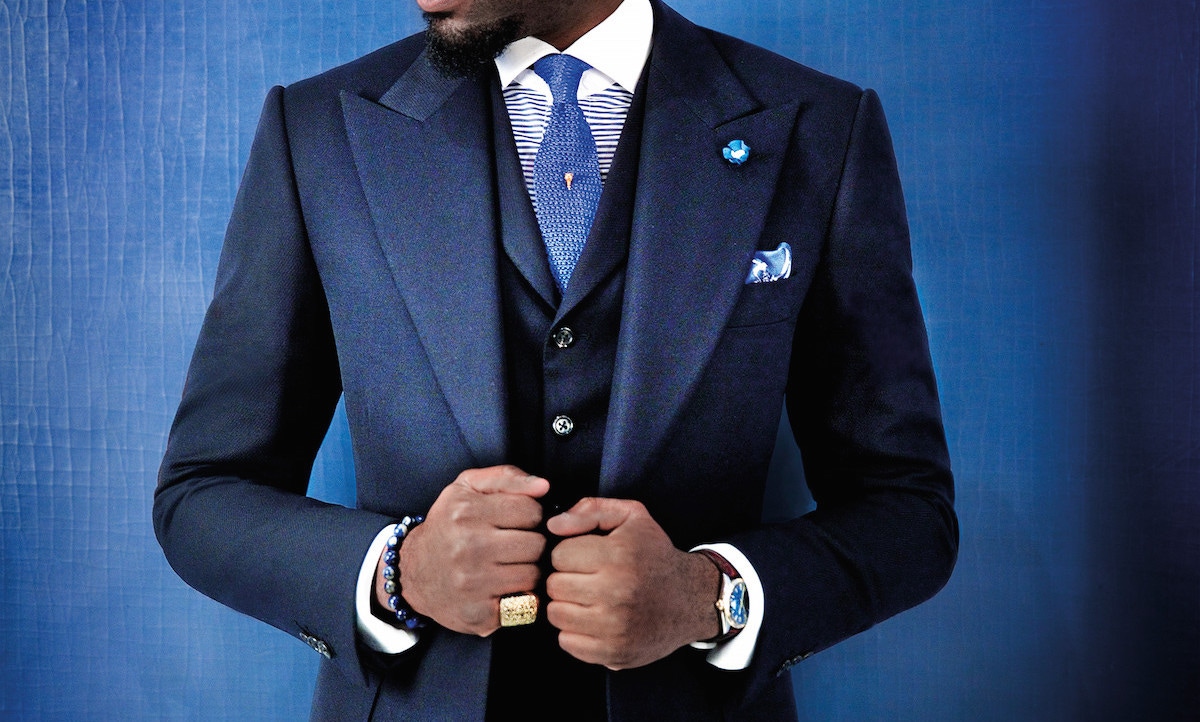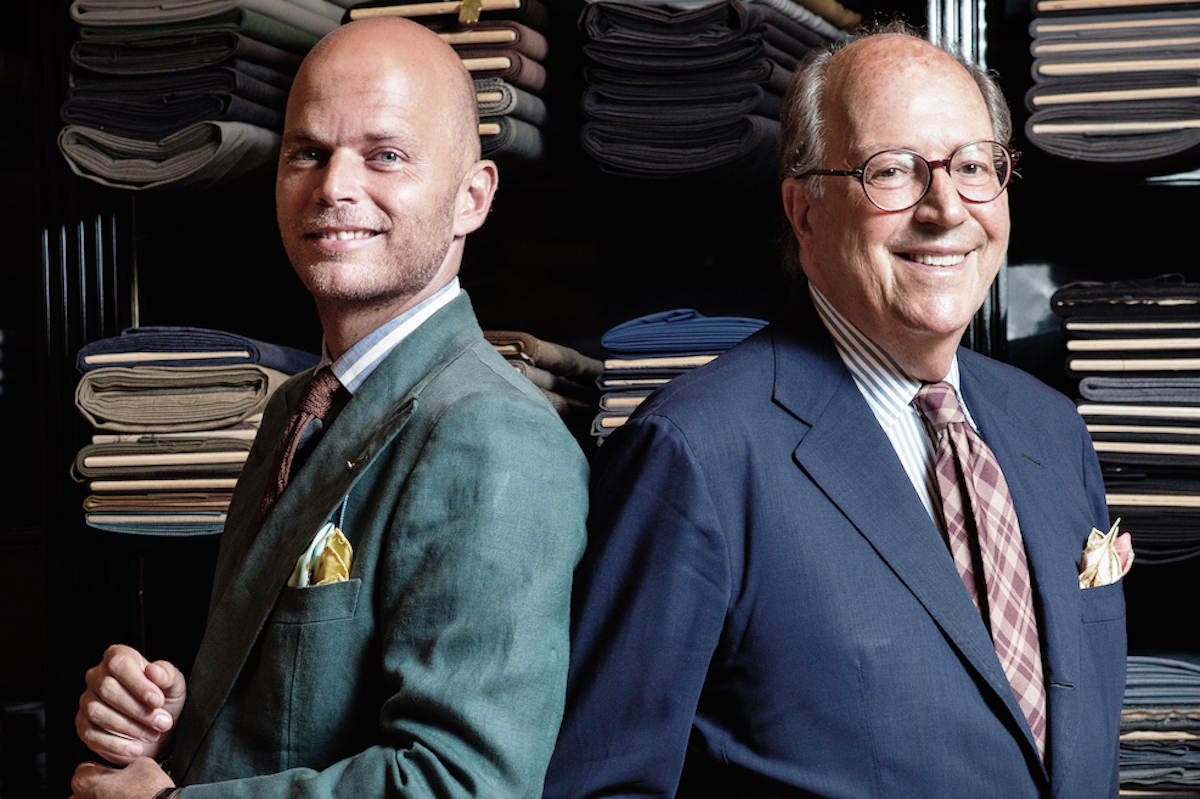Words of Wisdom: Edward Sexton
The Rake proffers still more words of wisdom, this time from the veritable Godfather of traditional British tailoring, Edward Sexton.

What can one possibly say about a man like Edward Sexton? A craftsman who has transcended and blurred the lines between bespoke and designer menswear, who continues to dress one of the most glamorous and exclusive client lists in the bespoke world and who has dauntlessly forged his path as a bastion of the Savile Row bespoke establishment for over fifty years, he is without question a living legend. As an enthusiastic fangirl-come-patron of the house myself, I can testify entirely to the philosophy, the skill and the artistry that manifests itself in Sexton’s clothing. Even so, opportunities to really quantify and communicate just what this extraordinary attitude towards the art of tailoring constitutes are few and far between. When we decided upon this series of stories then, it was a chance not to be missed to interview the veritable Godfather of British tailoring.
“There’s only one way to do bespoke. I know that there are computers out there now and bizarre cost-cutting machines and all kinds of modern technology, which is great in some areas of our business, but when you’re dealing with an individual client, having a private one-to-one with him and coming to understand him as a person, nothing can replace the true tradition of handwork. In the same way that we’ll sit with a client to understand his lifestyle and figure out where to guide him with his clothing in person, you can’t replace the human element in good tailoring.
"That’s one of the things I love about this job, you never finish learning and you never know it all."It’s also important that the craftspeople making the commission understand and appreciate the finished look of that particular garment – the signature elements that you specify for your house style – and that only comes over time. The architecture of the garment also depends upon the client. No two people are the same and you have to be responsive as a craftsman. Maybe you have to rework one pad to get the two shoulders to line up – its engineering. And of course there’s a secret to putting a pair of pads like ours into a garment, because it they are too rigid, they take control of the armholes. And as you do these things for clients you learn more and more, there’s always a new learning experience here. There’s always something new. That’s one of the things I love about this job, you never finish learning and you never know it all. I try to be as open minded as possible and to blame myself rather than other variables in the process or ‘this, that or the other’. You always have to look within yourself first and foremost, and that’s why when I go into the fitting room, I’m not looking to blame a tailor for an iffy pair of sleeves, or blame the cloth for shrinking or stretching or whatever it might be – I’m looking for my own mistakes. For mine and no one else’s, and asking myself how I can improve. And I will go back to work post-fitting and keep working on the garment until I’m satisfied.
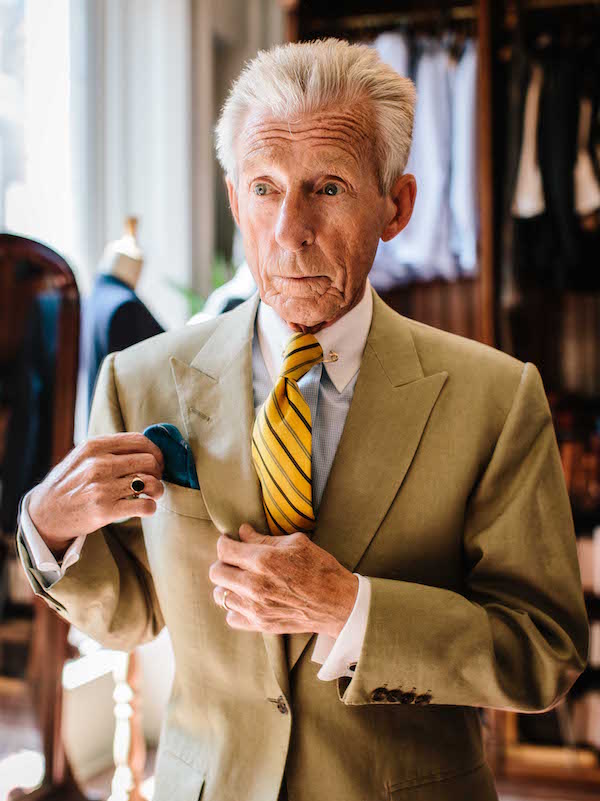
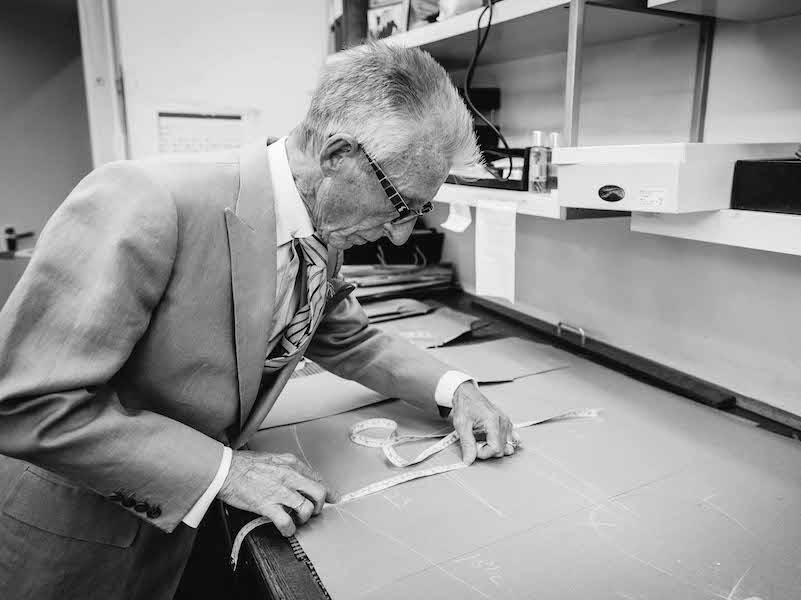
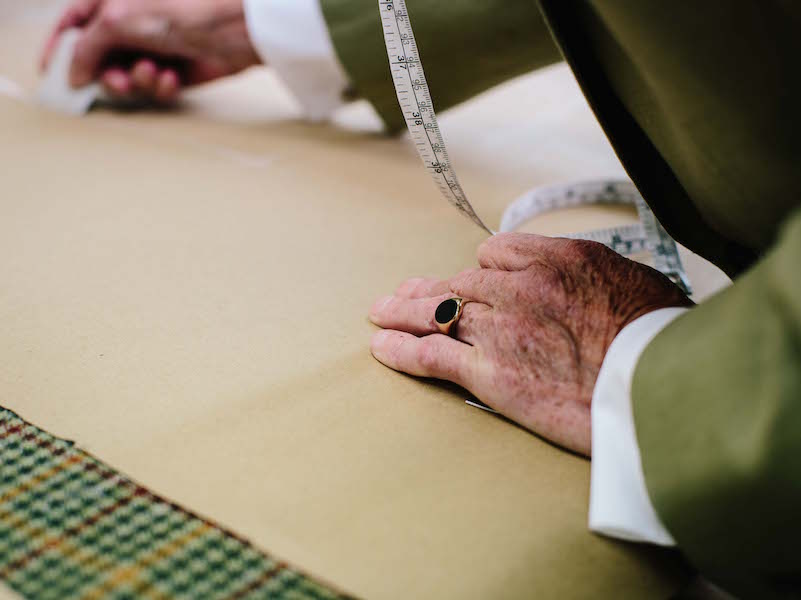
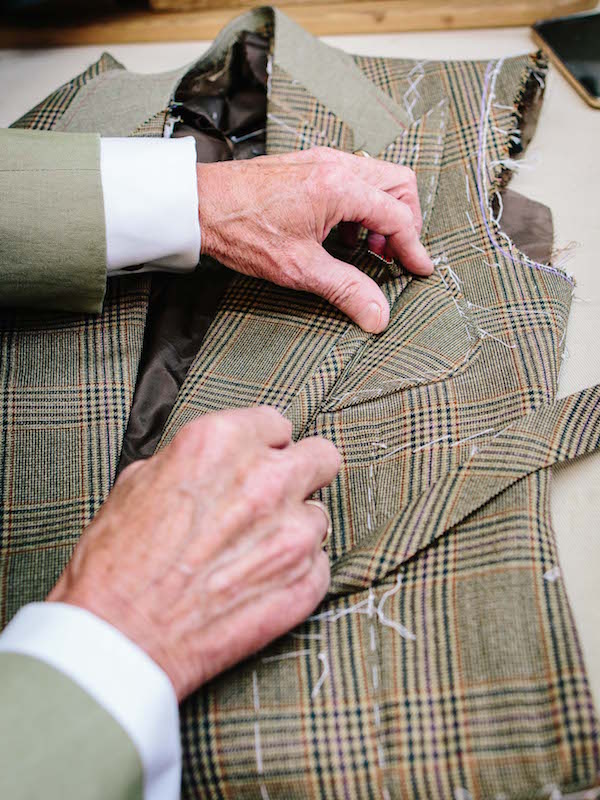
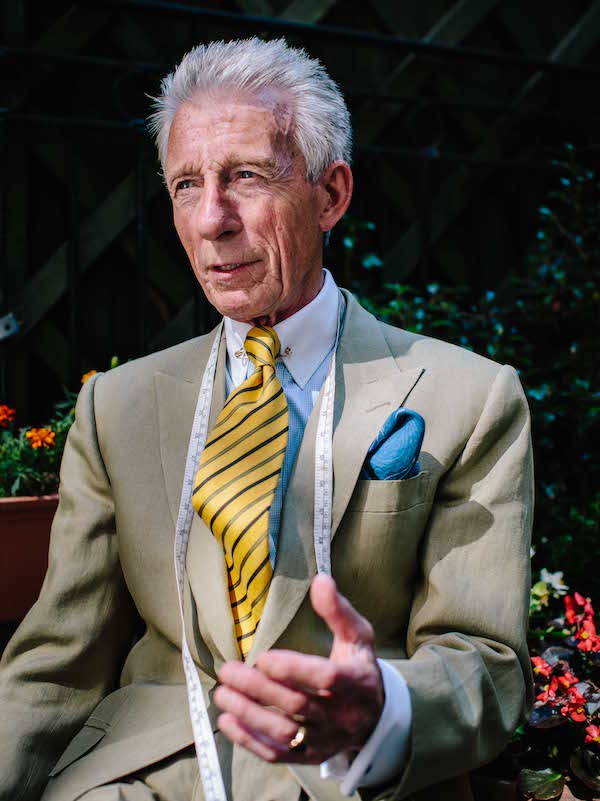
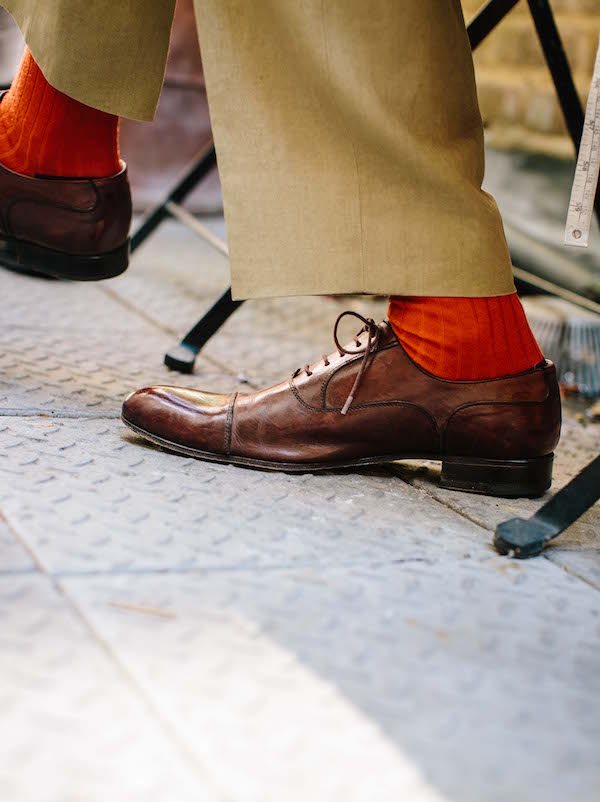
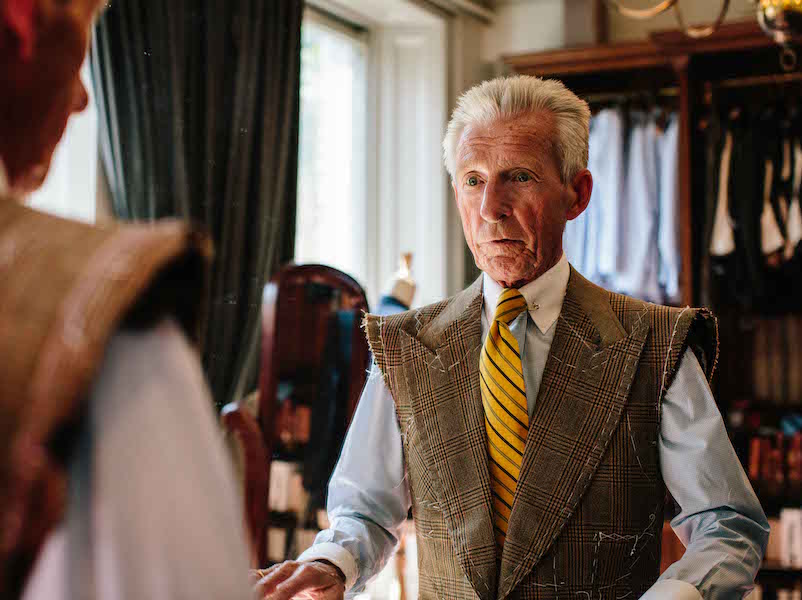
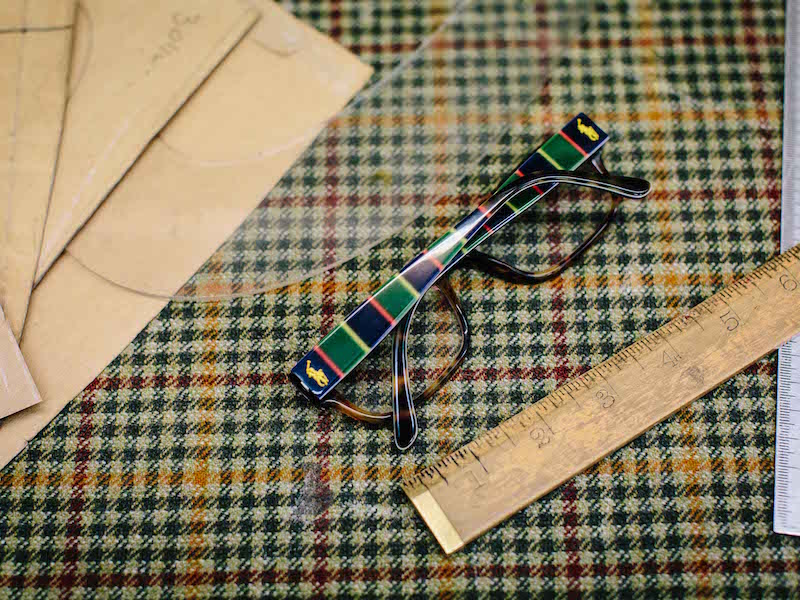
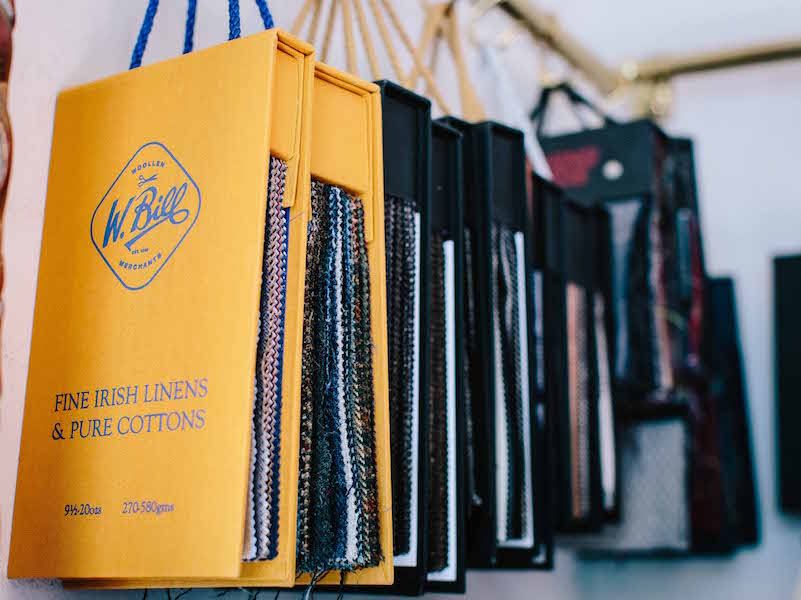
I’m a perfectionist about the clothes we make for the same reason that I can’t sit here and see some dust on the studio floor, or why I won’t leave a crooked picture on the wall - imperfections don’t sit well with me. Regardless of whom it’s for, I want to make the best suit I can for the client – the best suit that we can make as a team. And building a team is so important - for me as a cutter, it’s crucial. My team are only as good as I allow them to be, and I’m only as good as they allow me to be. Some tailors will say ‘oh well of course my priority is to my client.’ I won’t tell you that. My priority is to my tailors and the atmosphere in my workshop. Their attitude as a team will always show in the finished garment and if everything is right, then the result is a better suit for the client.
When you work like that with a group of craftspeople, it becomes as much about passing on knowledge as it is about passing garments of an appropriate standard out of the door. It’s my legacy really, the work that my team can achieve when I’m not around. I often talk about my old bosses from over the years, ‘Mr this or Mr that’, because they passed something on to me: time, patience and knowledge. Because of them I’ve been able to have a good quality of life myself and for my family, and that’s something I’d like my team to achieve through me in their own lives – that natural evolution in the life of the craft.
"My priority is to my tailors and the atmosphere in my workshop. Their attitude as a team will always show in the finished garment."Speaking of which, natural elegance – that’s what we’re about. We try to help customers to feel totally comfortable in their clothes psychologically. We talk about it in terms of ‘romancing’ a garment. To me it’s the difference between being a tailor that comes into work and cuts a suit and treats it as an object, and the tailor that thinks about the impact of the aesthetic that they’re trying to achieve. We’re always trying to get our clothes looking clean and well balanced and harmonious – like a very natural thing. When you wear a beautifully cut jacket that fits you well, and just let it flow and drape as you move in it without worrying about it, that’s the key. You must have integrity in this business. There have been times where a people might have ordered dozens of suits over the years and their personal circumstances have changed and they can’t collect an order. Very disappointing situations those, and more often than not, I’ve said ‘look, the clothes are no good to us, take them and pay us when you can’. One particular client went away, came back three years later having made good, paid for his suits and ordered more. That’s the value of integrity as a craftsman - it pays you back. My father gave me the best advice I’ve ever received. He said ‘learn a trade, have a trade at your fingertips, be master of your trade and if you ever need to you can pick up your tools and walk.’ But that comes with responsibility. I’m responsible for my workshop and for the welfare of my tailors and the quality of our work. Without a good workshop, you’re dead. You can’t demand anything in life, things have got to be done with good grace.”
- Readers might be interested to know that Sexton is hosting a number of trunk shows over the coming months, and will be in Berlin between 8th-10th September, in New York between the 26th and 30th of September, and Hong Kong/Singapore between 30th October and 4th of November. Interested parties can email info@edwardsexton.co.uk to arrange a consultation.
